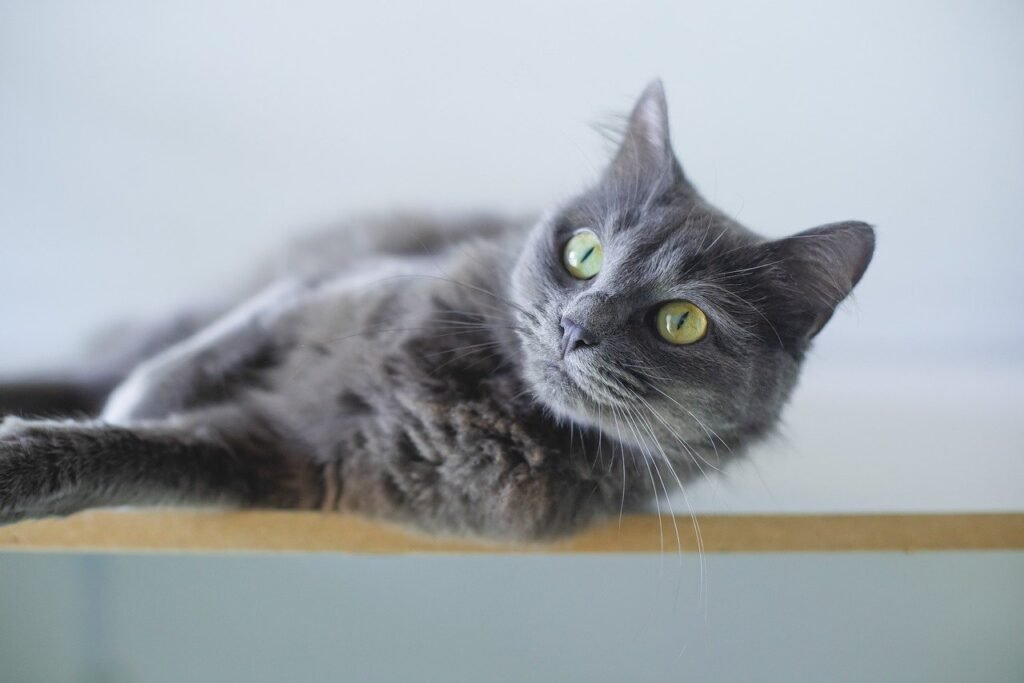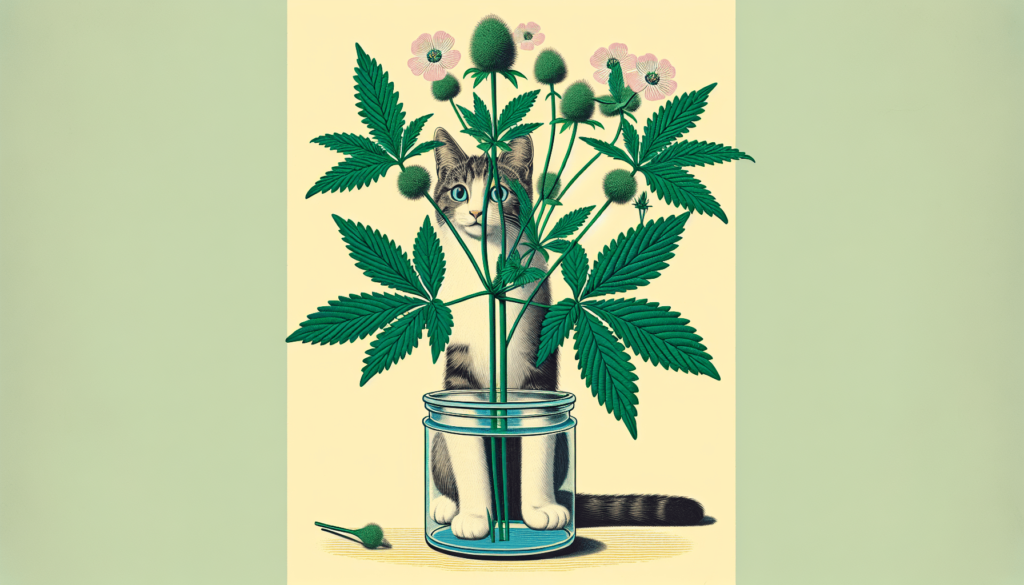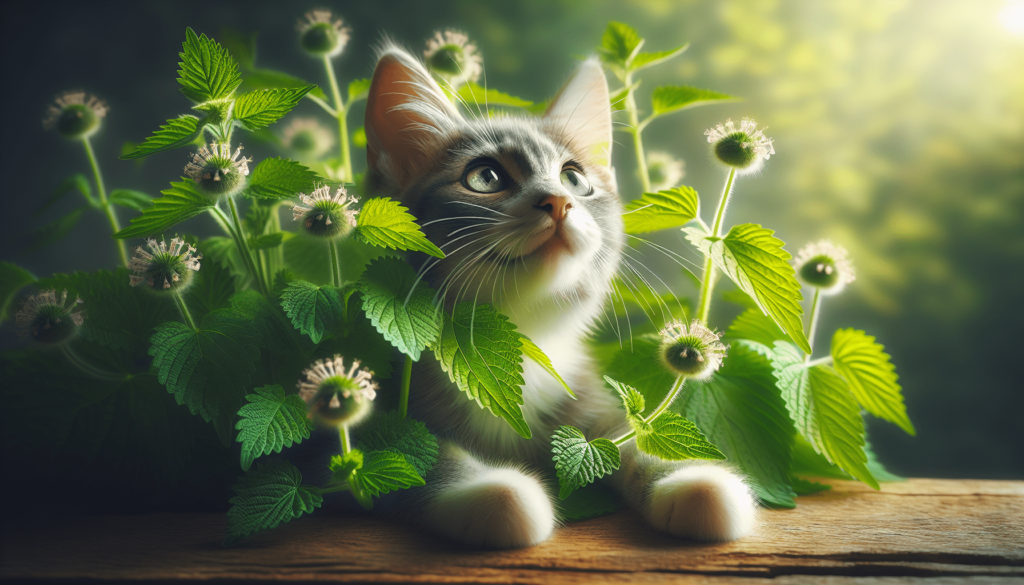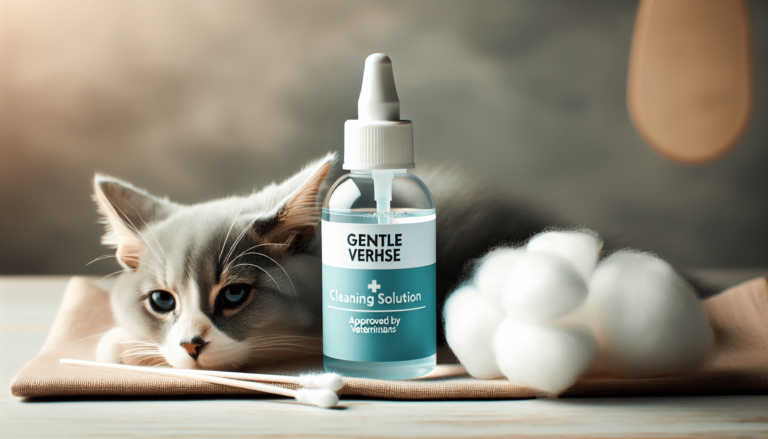Is Catnip Bad For Cats
Curiosity piqued, you begin to wonder whether catnip is harmful to your feline companion. We all know how much cats adore this herb, but have you ever wondered if there are any potential downsides? In this article, we will explore the myth surrounding catnip and its alleged adverse effects on our beloved furballs, providing you with valuable insights into this age-old question. So, sit back, relax, and let’s unravel the truth behind catnip and its impact on our furry friends.
Understanding Catnip
What is Catnip?
Catnip, also known as Nepeta cataria, is a perennial herb that belongs to the mint family. It is native to Europe, Africa, and Asia but can now be found growing in various regions around the world. The plant produces a characteristic scent that is irresistible to many cats, making it a popular choice for both pet owners and cats alike.
Origin and Species of Catnip
Catnip is believed to have originated in parts of Europe and Asia. There are several species of catnip, including Nepeta cataria and Nepeta mussinii, that are commonly used for their effects on cats. These plants contain a compound called nepetalactone, which is responsible for the unique effects catnip has on our feline friends.
Common Uses of Catnip
While catnip is most well-known for its effect on cats, it has also been used for various other purposes. In human herbal medicine, catnip has been used to relieve digestive issues, reduce anxiety and stress, and promote relaxation. However, it is crucial to note that the effects of catnip on cats and humans may differ significantly.
Catnip and Cats
Why Cats Are Attracted to Catnip
Cats are naturally drawn to catnip due to the compound nepetalactone, which triggers a unique response in their brains. When cats smell or ingest catnip, it can stimulate their sensory receptors, resulting in a range of behavioral reactions. These reactions are often characterized by increased playfulness, rolling, rubbing against objects, and even vocalizations.
Effects of Catnip on Cats
The effects of catnip on cats can vary from one individual to another. Some cats may exhibit heightened activity and energy, while others may become more relaxed and sedated. The response to catnip can be influenced by factors such as genetics and age, with kittens usually showing little to no reaction until they are at least six months old.
Variation in Cats’ Responses to Catnip
Interestingly, not all cats are affected by catnip. Approximately 50-75% of cats possess the genetic sensitivity to nepetalactone, while others show no interest or reaction at all. It is not yet fully understood why some cats are more responsive to catnip than others, but it adds to the charm and mystery surrounding this unique plant.

Methods of Introducing Catnip to Cats
Catnip-infused toys
Catnip-infused toys are a popular way to introduce catnip to your feline friend. These toys are often filled with dried catnip leaves or pellets, which release the scent and attract cats to engage in play. It allows cats to interact with the catnip in a safe and controlled manner, providing both mental and physical stimulation.
Dried catnip
Dried catnip is another common method of introducing catnip to cats. It can be sprinkled on toys, scratching posts, or placed inside a catnip-filled sock. The scent released by the dried catnip can excite and engage cats, encouraging play and exploration.
Catnip sprays
Catnip sprays are a convenient way to apply catnip to various surfaces or objects that you want your cat to interact with. These sprays typically contain catnip oil or extract, which can be sprayed on scratching posts, beds, or blankets. It allows you to enhance your cat’s environment with catnip without causing a mess.
Fresh catnip
For those lucky enough to have access to fresh catnip, offering it to your cat can be an enriching experience. Cats often enjoy chewing, rolling in, and rubbing against fresh catnip plants, indulging in the natural and potent aroma. Just be sure to supervise your cat while they interact with fresh catnip to ensure their safety.
Safety Concerns Regarding Cats and Catnip
Potential Allergic Reactions
While catnip is generally considered safe for cats, some individuals may have allergic reactions to its scent or compounds. Signs of an allergic reaction can include excessive scratching, sneezing, coughing, or digestive disturbances. If you notice any unusual symptoms in your cat after exposure to catnip, it is best to consult with your veterinarian.
The Possibility of Over-Indulgence
Although catnip is not considered addictive or harmful to cats when used appropriately, it is essential to moderate your cat’s exposure to prevent over-indulgence. Some cats can become so engrossed in catnip that they neglect other activities, such as eating, drinking, or resting. It is crucial to monitor your cat’s behavior and provide adequate breaks from catnip to maintain a balanced lifestyle.
Is catnip addictive for cats?
Contrary to popular belief, catnip is not addictive for cats. While cats may develop a preference for catnip and seek it out, they do not exhibit signs of withdrawal or dependence when it is no longer available. Catnip is more akin to a source of enrichment and entertainment for cats, rather than a substance they become dependent on.

Studies on Catnip and Cats
What research says about catnip and cats
Numerous studies have explored the effects of catnip on cats, shedding light on its behavioral and physiological impact. Research suggests that catnip’s influence on cats is mainly mediated through the olfactory system, activating specific receptors in the brain and triggering behavioral responses. However, more research is still needed to fully understand the mechanisms behind cats’ reactions to catnip.
Are there long-term effects of catnip on cats’ health?
To date, no long-term negative effects of catnip on cats’ health have been reported. It is generally considered safe for cats when used appropriately and in moderation. However, if you have any concerns or questions about the long-term effects of catnip on your cat, it is always best to consult with your veterinarian.
Benefits of Catnip for Cats
Use of Catnip in Training
Catnip can be a valuable tool in training and behavior modification for cats. By using catnip as a reward or incentive, you can encourage desired behaviors and make training sessions more engaging and enjoyable for your feline companion. This can be particularly useful in teaching cats new tricks or improving their response to commands.
How catnip can help in tackling obesity in cats
Obesity is a common health issue among cats, and encouraging physical activity can play a vital role in weight management. Catnip can be used to motivate cats to move and exercise, as the enticing scent can pique their interest and encourage playfulness. By incorporating catnip-infused toys or activities into your cat’s routine, you can help them maintain a healthy weight and overall well-being.
Catnip and its effects on cats’ mood
Catnip has been observed to have mood-altering effects on cats, often inducing a sense of relaxation and contentment. This can be particularly beneficial for cats that experience stress, anxiety, or exhibit aggressive behaviors. By providing a safe and controlled environment with catnip, you can help alleviate your cat’s stress and promote a calmer and happier demeanor.

Potential Negative Effects of Catnip on Cats
Can catnip cause diarrhea in cats?
While uncommon, some cats may experience gastrointestinal upset after ingesting or consuming large quantities of catnip. This can manifest as diarrhea or vomiting. If your cat shows any signs of digestive distress after exposure to catnip, it is advisable to consult with your veterinarian to ensure their well-being.
Can catnip usage cause changes in cats’ behavior?
In most cases, catnip has a temporary and harmless effect on cats’ behavior. However, some cats may become overly excited or aggressive when exposed to catnip. If you notice any concerning changes in your cat’s behavior, such as increased aggression or excessive hyperactivity, it is essential to monitor their interactions with catnip and adjust their exposure accordingly.
Catnip and cats’ sleep patterns
While catnip can induce periods of heightened activity and playfulness, it typically does not disrupt cats’ sleep patterns. Cats may experience a brief period of increased energy after exposure to catnip, but they usually return to their normal sleep routines. If you have any concerns about the impact of catnip on your cat’s sleep, observing and adjusting their catnip exposure can help ensure a good night’s rest.
Alternatives to Catnip for Cats
Silvervine
Silvervine, also known as Actinidia polygama, is a plant that has effects similar to catnip on cats. It contains compounds that can trigger reactions similar to those caused by nepetalactone. Some cats that do not respond to catnip may be attracted to silvervine, making it a potential alternative.
Valerian Root
Valerian root is another herb that has stimulating effects on cats. It can induce a similar response to that of catnip, stimulating playfulness and exploration.
Lavender
Lavender is known for its calming properties in humans, but it can also have a similar effect on cats. Some cats may find the scent of lavender pleasing and relaxing, providing an alternative to catnip for promoting a sense of calm.

Expert Opinions on Catnip Safety
What veterinarians say about catnip
Veterinarians generally consider catnip to be safe for cats when used appropriately. They recommend moderate and supervised exposure to catnip to prevent over-indulgence and to ensure the well-being of cats.
Scientific stance on catnip usage for cats
Scientific research supports the safe use of catnip for cats. The compounds found in catnip have been extensively studied, and their effects on cats’ behavior and well-being are well-documented. However, it is important to abide by the recommended usage guidelines and monitor your cat’s response to ensure their safety and enjoyment.
Conclusion: Is Catnip Really Bad for Cats?
After exploring the various aspects of catnip and its effects on cats, it becomes clear that catnip is not inherently bad for our feline companions. When used appropriately and in moderation, catnip can provide mental and physical stimulation, help with training and behavior modification, and promote relaxation. As responsible pet owners, it is essential to understand our individual cat’s sensitivity to catnip and provide a safe and enriching environment that suits their preferences and needs. By considering the pros and cons, consulting with veterinarians, and making informed decisions, we can ensure that catnip remains a delightful and enjoyable experience for both cats and their human companions.







